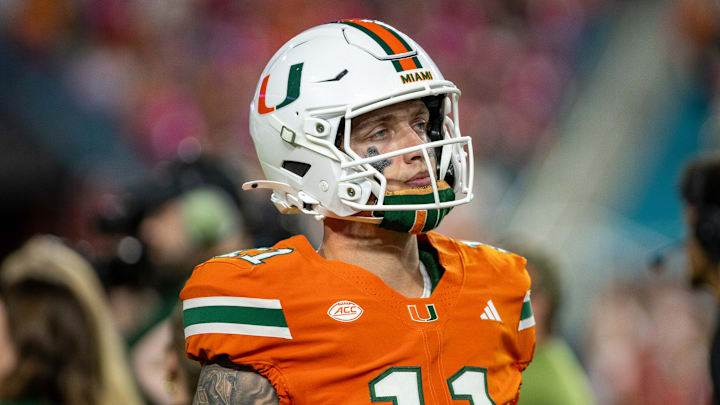A viral X post tried to lump the Dallas Cowboys and Miami Hurricanes together as similarly "irrelevant." It's a bad comparison. The claim ignores that, in the decades since Dallas' last championship run, Miami has actually won a national title, played for another and registered multiple top-five finishes — benchmarks the Cowboys haven't approached in the NFL over the same span (with all due respect).
— College Sports Only (@CSOonX) October 21, 2025
Let's start with Dallas. The Cowboys have not reached even an NFC championship game since winning the Super Bowl to cap the 1995 season, a three-decade conference-title drought. Their recent playoff exits include 2021 and 2022 losses to San Francisco and a 2023 wild-card loss to Green Bay — further evidence of a franchise that has struggled in January over an extended period of time.
Miami's track record over the same era is materially different. The Hurricanes won the 2001 national championship with a 12–0 season and a 37–14 rout of Nebraska in the Rose Bowl, then returned to the BCS title game the very next season, falling to Ohio State in double overtime at the 2003 Fiesta Bowl. That span alone — one championship and another title-game appearance — outstrips anything the Cowboys have produced competitively since 1995 and eliminates the "stuck in 1990s" claim.
Since the Cowboys' last Super Bowl, Miami finished No. 2 in 2000, No. 1 in 2001, No. 2 in 2002 and No. 5 in 2003 — that's four top-five finishes in four seasons — then returned to the final AP poll at No. 18 after the 2024 campaign. If you're going to make a claim that these football teams are stuck in the past then you better get the timeline of "the past" correct.
Player development is another piece that nullifies the whole "irrelevant" argument. Miami set the modern record with six first-round NFL draft picks in 2004 — a standard only tied, not surpassed, by Alabama. The Hurricanes also just produced the No. 1 overall pick — and seven NFL Draft picks — in the 2025 NFL Draft. That pipeline of talent is what brings the program national coverage, not just the name brand (name recognition obviously helps, but they have clearly earned it on the field, especially now).
Another factor to note: if you ask Miami fans whether the program is back, a majority of them will be cautiously optimistic. Over the last eight years, the impressive teams have had bad late-season moments and Miami fans recognize that. While it may be a little bit of a stretch to say that Miami is known for mid-season collapses, let's say it's valid for a second; it then wouldn't make any sense to also label the fans as delusional when they would be the first to acknowledge that the program needs to finish stronger in November.
The comparison is also apples to oranges. An NFL franchise is judged almost exclusively on postseason advancement in a parity-driven league; a college program's footprint includes championships, title-game berths, top-five finishes, major bowls, talent production, etc. By those competitive measures since 1995, Miami's resume clears the bar that has eluded Dallas. Calling them equivalent diminishes what the Hurricanes have actually accomplished over the last 25 years.
